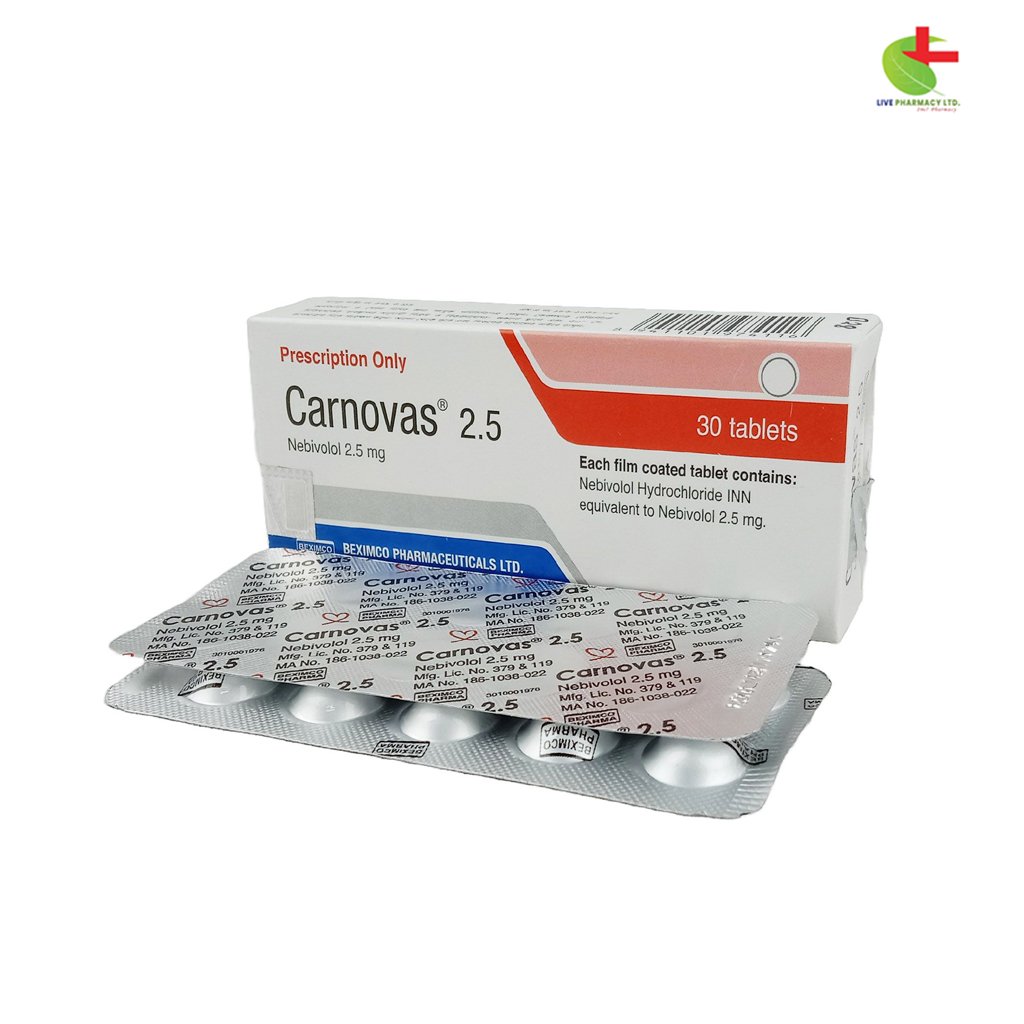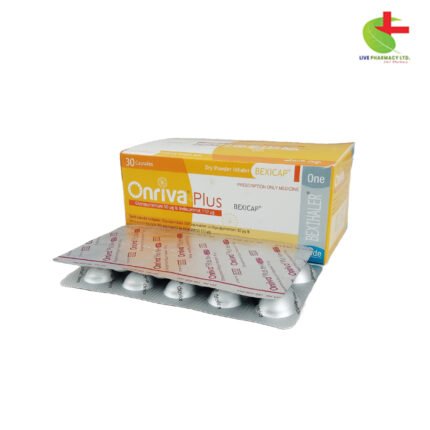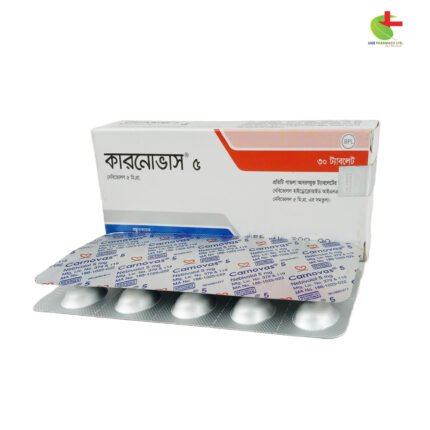Carnovas 2.5
70.00৳ Strip
- Carnovas is a β-blocker indicated for hypertension and chronic heart failure in elderly patients.
- Nebivolol, its active ingredient, blocks β1 and β2 adrenergic receptors, reducing heart rate and myocardial contractility.
- Metabolized via glucuronidation and CYP2D6 hydroxylation, with a half-life of 12-19 hours.
- Initial dose is 5 mg daily, potentially titrated up to 40 mg for effective blood pressure management.
- Caution is advised regarding interactions, particularly with drugs affecting AV conduction or sympathetic activity.
 Brand
Brand
|
Beximco Pharmaceuticals Ltd |
|---|---|
 Generics
Generics
|
Nebivolol Hydrochloride |
 Type
Type
|
Tablet |
Indications:
Carnovas is indicated for hypertension, essential hypertension treatment, and stable mild to moderate chronic heart failure in elderly patients.
Pharmacology:
Nebivolol, a β adrenergic receptor blocking agent, inhibits both β1 and β2 adrenergic receptors without intrinsic sympathomimetic or membrane stabilizing activity. It decreases heart rate, myocardial contractility, sympathetic outflow, renin activity, and induces vasodilation.
Pharmacokinetics:
Metabolized via glucuronidation and CYP2D6 hydroxylation, nebivolol’s active isomer (d-nebivolol) has a half-life of about 12-19 hours. It is well-absorbed, with peak plasma concentrations occurring 1.5 to 4 hours post-dosing.
Dosage & Administration:
Initiate at 5 mg once daily, adjusting up to 40 mg for blood pressure control. Can be used with or without food, alone or with other agents.
Interactions:
Use caution with myocardial depressants, AV conduction inhibitors, digitalis glycosides, and other β-blockers. Monitor closely when co-administered with CYP2D6 inhibitors.
Contraindications:
Avoid in severe bradycardia, heart block, cardiogenic shock, decompensated cardiac failure, sick sinus syndrome (without pacemaker), severe hepatic impairment, and hypersensitivity to any component.
Side Effects:
Commonly reported side effects include headache, nausea, and bradycardia.
Precautions & Warnings:
Avoid abrupt discontinuation in coronary artery disease patients. Use cautiously in heart failure, angina, bronchospastic diseases, anesthesia, diabetes, thyrotoxicosis, peripheral vascular disease, and with non-dihydropyridine calcium channel blockers.
Special Populations:
Use with caution in severe renal impairment; contraindicated in severe hepatic impairment.
Therapeutic Class:
Beta-adrenoceptor blocking drugs, Beta-blockers.
Storage Conditions:
Store below 30°C, protect from light and moisture, and keep out of reach of children.













Reviews
There are no reviews yet.